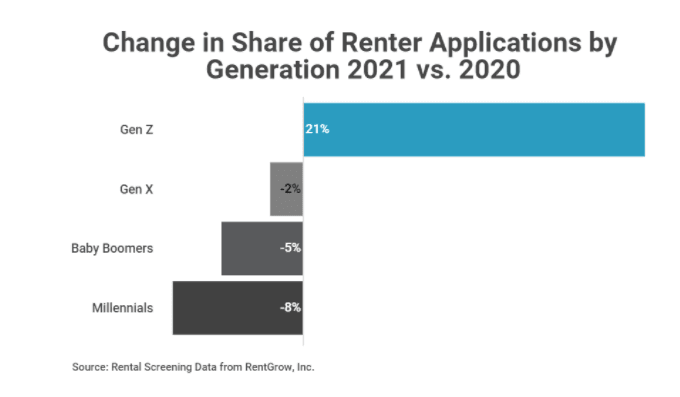The Story
On February 15, 2022, the Federal Communications Commission (FCC) released a 49-page ruling seeking to address perceived obstacles renters in multifamily buildings face when obtaining the benefits of competitive broadband, voice, and video services. Don’t worry, we read the ruling so you don’t have to!
These types of rulings are part of a broader push by the White House announced last year to promote more competition across various industries.
In short, this new ruling affects owners and broadband network providers in how they deploy, maintain, and upgrade services in multifamily assets. There are three new rules that multifamily owners need to be aware of:
- Prohibiting communication providers and owners from entering into both exclusive and graduated revenue-sharing agreements.
- Clear disclosure of the existence of exclusive marketing arrangements with providers.
- Prohibit the so-called “sale-and-leaseback” arrangements for inside cable wiring.
The ruling aims to promote tenant choice and competition when it comes to communication services, but there are some important takeaways for owners worth discussing. Note that providers who only offer broadband, including VoIP, are not covered by this new regulation.
Industry groups aren’t happy
As we know, reliable and fast internet service is a top amenity choice for renters.
As such, owners who seek to improve or upgrade their services are now limited in the choices and agreements they can make. According to a National Multifamily Housing Council (NMHC) statement on the ruling:
Despite the advocacy of NMHC and other industry stakeholders, the new FCC Order is disappointing. We believe it has the potential to harm investment in the deployment, maintenance and modernization of broadband networks at a time when we need the public and private sector to work together to end the digital divide once and for all…Early review of the Order shows that the FCC failed to acknowledge the reality that the existing partnership-based model has worked exceedingly well for much of the multifamily broadband market where apartment residents, by-and-large, are well served and often receive better, faster, cheaper, and more reliable broadband than what is typically available in the broader market.
Ban Invalidates Existing Agreements
According to the ruling, “Our prohibition on graduated and exclusive revenue-sharing agreements applies both to agreements entered into after the effective date of these rules and those already in existence when these rules become effective.” This means owners will have to revisit any existing agreement under this new framework.
Some Areas Have a Lack of Competition Anyway
In the 2019 discussion of this topic, opponents noted that “the typical apartment community today has at least two broadband vendors available to residents, in markets where such competition exists.” It’s important to note that communication providers at times have already negotiated monopoly agreements in certain jurisdictions and neighborhoods due to the high cost of wiring and providing services. This will limit an owner’s ability to even adhere to the current ruling as renters are already limited in their choices.
Forced Access
Prior to this ruling, owners would install the infrastructure for telecommunications companies (conduits, telecom closets, unit materials, etc.), and could then enter into agreements with a provider of choice. No longer will this be the case, giving all providers access to the basic telecom infrastructure of a building. This means tenants will be able to request any telecommunication service to enter and utilize this infrastructure.
Expert Take
“The FCC’s latest actions further complicate the process of contracting for the provision of broadband and other services to MTEs.” — Davis Wright Tremaine LLP
“Cable providers have argued that curbing the practices cited by the FCC may inhibit investment and deployment in buildings.” — Todd Shields, Bloomberg
So What?
Exclusive marketing deals are still allowed under the new rules, but must be clearly disclosed to tenants. In the end, this will deal a blow to NOIs due to the potential revenue loss that this new rule will precipitate. Reviewing your current agreements under the new guidelines alongside your legal team is critical for multifamily owners.
This Week’s Top Headlines
- Multifamily home building has rebounded from quarterly declines that began at the outset of the pandemic in Q4 2021 — NAHB
- Multifamily deal flow is hitting record levels, and capital into secondary and tertiary markets is increasing — Globe St
- Mortgage rates fell due to Russia’s invasion of Ukraine, with the 30-year average fixed rate dropping to 3.76% — Washington Post
- Apartment sales reached $335.3 billion in 2021, an annual jump of 128%, and a significant increase from the previous high of $193 billion in 2019 — Smart Cities Dive
- Larger floor plans in build-to-rent single-family homes are stealing away apartment renters — Globe St
Weekly Chart
According to a new report from RentCafe, the number of apartment applications increased 10% year-over-year from almost 3 million to 3.2 million in 2021. But, this was led by only one demographic:


